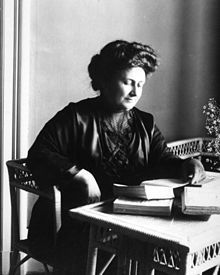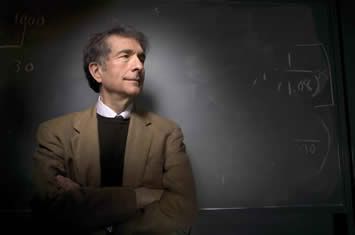
Progressivism and the fulfilled life…
“The aim of education should be to teach the child to think, not what to think.” One brief comment by John Dewey (1859 – 1952) can sum up the total concept of progressive education. Progressivism’s basic underlying concept is that the physical world is the basis of reality, and as such, progresses over time. Since the world is progressing and changing over time, so must the ideas and methods behind educational instruction.
Sydney Smith said, “The real object of education is to give children the resources that will endure as long as life endures; habits that will ameliorate, not destroy; occupations that will render sickness tolerable, solitude pleasant, age venerable, life more dignified and useful, and death less terrible.” Careful scrutiny of Smith’s statement might lead one to the conclusion that indeed, these ideals reached, would lead an individual to a fulfilled life. Through Dewey’s methods of instruction, a child should, in all probability eventually reach this state of fulfillment in life.
The underlying basis for Dewey’s progressive schooling is that we learn best from meaningful life experiences, social interaction, and scientific experimentation. The focus of the curriculum is flexible, integrating academics around activities reflecting the personal integrity, need and experiences of the students. Each one has a path to take in life. Surely each path should be taken in the most harmonious manner to the individual. Just as we are not all Einstein’s – we cannot all be molded into the same form of thinking.
Dewey’s philosophy of education has students learning by doing. Students are directed or guided by a teacher into integrated learning experiences in which the student is encouraged to think and perform to the best of his/her ability in his/her most appropriate style.
What does the author mean by most appropriate style? Every student learns in a different style. Some are auditory learners while still others are visual. Many learn best through hands-on experiences. Progressivism allows for freedom of expression in learning. It’s goal is for students to become independent problem solvers, to enjoy learning, and to live comfortably (remember Smith?) in the world while also helping to reshape it (as it progresses). When we encourage individual growth in an independent manner and style we encourage people who can function well in the world because they are living up to their potential. The “fulfilled life” – giving our children “resources that will last as long as life endures.”
We truly give them these resources by encouraging the use of the individual’s abilities. Dewey believes that as the world progresses, so must education. Children of today are not the children of yesterday. They are living in a new world and must be led toward the path of fulfillment with as little stagnation as possible. Progressivism can help lead them in the right direction.
Americans are entering another new era in education. One in which vouchers may wreak havoc on many of the tried and true methods of learning that positively led many of us to high student achievement over years past. We must all be responsible enough to hold our government officials accountable for the policy changes they make which may or may not lead our future generations to “the fulfilled life.”
Nancy












